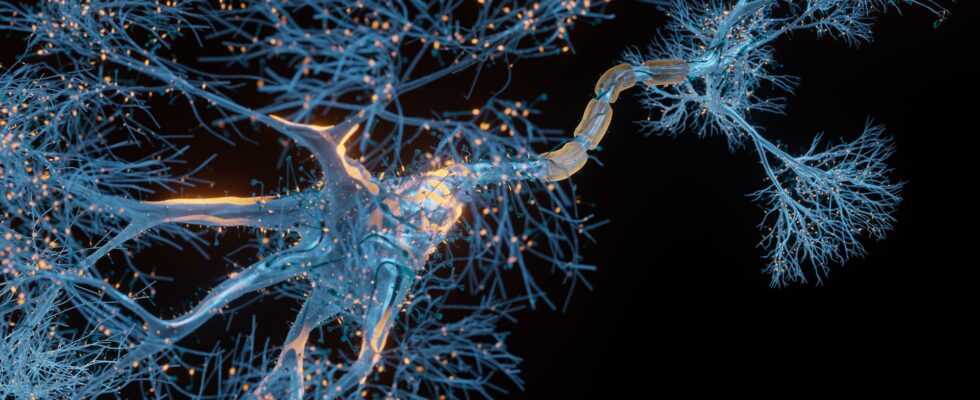Nerve cells need ion channels so that they can convert incoming signals into electrical impulses. The pores in the membrane allow charged particles such as sodium or potassium ions to flow in and out of the cell in a controlled manner. Scientists from the Massachusetts Institute of Technology (MIT) in Cambridge, USA, have now discovered a surprising peculiarity of the human brain: our neurons have far fewer of these tiny channels than those of other mammals. Mark Harnett’s working group believes that this fact could have made the high computing power of the human thinking organ possible in the first place.
The researchers examined the nerve cells in brain slices of ten different mammals – from the Etruscan shrew, the smallest mammal in the world, to rats, rabbits and macaques, right up to humans. The human preparations were tissue that had been surgically removed from epilepsy patients in the course of a surgical procedure. With the help of extremely thin pipettes, the team measured the electrical properties of the pyramidal cells in the cerebral cortex. This enabled it to infer the amount of ion channels.
Only humans fall out of line
A consistent principle was found in all animal species examined: the density of ion channels in a neuron increases with the size of the nerve cell. In the tiny brain of the Etruscan shrew, which is packed with very small neurons, there are more nerve cells in a given brain volume than in the rabbit, which has much larger neurons. However, since the latter have more ion channels, the density of the channels per tissue volume is the same for both types.
“It seems as if the cortex is trying to keep the number of ion channels per brain volume and thus the energy costs constant across all species,” says Harnett. Only humans fall out of line here. The scientists found significantly fewer ion channels in our species than would have been expected based on this principle. They suspect that this allows the human brain to invest more energy in more complex connections or higher rates of fire. “If the brain saves energy by reducing the density of ion channels, it can spend more energy on other neuronal processes,” says the neuroscientist.
